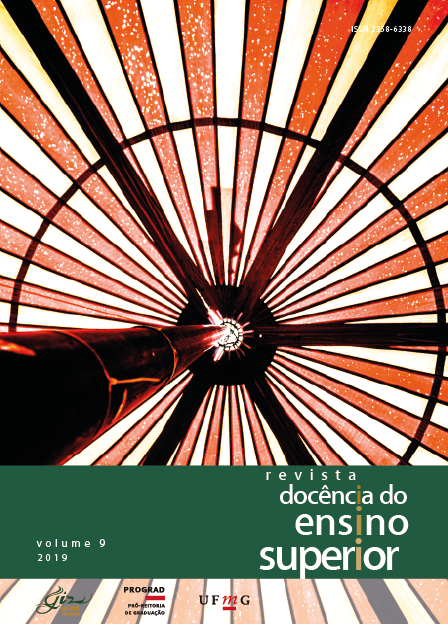Research on teacher training in the national meetings of ANPEd
is there a place for evaluations?
DOI:
https://doi.org/10.35699/2237-5864.2019.2550Keywords:
Teacher training, GT8 from ANPEd, Educational evaluationAbstract
The present documentary research aimed to identify some evidence of the debate about the educational evaluation in teacher training. For that, we chose the texts from research published in GT8 – Teacher Training in the National Meetings of the National Association of Postgraduate and Research in Education from 2005 to 2015 as the object of our analysis. The research showed that none of the 335 texts presented in the ten editions mapped discussed the educational evaluation in the context of teacher training. This gap raises concerns since it opens space for the culture of professional training courses offered by the education systems that aim, mainly, to provide teachers and school managers with tools for the so-called appropriation of results, once again creating conditions for the evaluation of the system to gain space on classroom assessment.
Downloads
Downloads
Published
How to Cite
Issue
Section
License
Copyright (c) 2019 Helena Rivelli de Oliveira, Diovana Paula de Jesus, Eliane Medeiros Borges

This work is licensed under a Creative Commons Attribution 4.0 International License.
Authors who publish in this journal retain the copyright and grant the journal the right of first publication, with the work simultaneously licensed under the Creative Commons Attribution License which allows the sharing of work with acknowledgment of authorship and initial publication in this journal.
Authors are authorized to take additional contracts separately, for non-exclusive distribution of the version of the work published in this journal (e.g. publish in institutional repository or as a book chapter), with acknowledgment of authorship and initial publication in this journal.
Open access policy:
Revista Docência do Ensino Superior is an Open Access journal, which means that all content is available free of charge, at no cost to the user or their institution. Users may read, download, copy, distribute, print, search, or link to the full texts of the articles, or use them for any other legal purpose, without seeking prior permission from the publisher or author, provided they respect the license to use the Creative Commons used by the journal. This definition of open access is in line with the Budapest Open Access Initiative (BOAI).
























